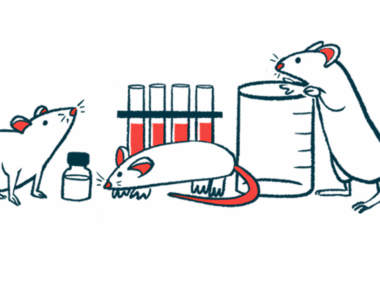AB-1005 gene therapy placed on fast track by regulators in US, UK
Clinical trials of AB-1005 currently recruiting or will be enrolling patients soon
Written by |

AskBio’s investigational gene therapy AB-1005 has been granted fast-track designation for Parkinson’s disease by the U.S. Food and Drug Administration (FDA), and innovation passport designation by the regulatory agency in the U.K.
These designations are meant to accelerate the development and review process of therapy candidates designed to treat serious conditions and fill unmet clinical needs, which may offer significant benefits over approved treatments. The goal of the programs is to provide new therapies to patients sooner.
AB-1005 being tested in currently recruiting REGENERATE-PD Phase 2 trial
The treatment’s safety and efficacy is currently being evaluated in the REGENERATE-PD Phase 2 trial (NCT06285643), which is recruiting patients with moderate Parkinson’s experiencing motor fluctuations despite being on a stable medication regimen, at sites in the U.S. Trial sites in the European Union and the U.K. are expected to open later this year.
“These designations clearly underscore the importance of developing innovative therapies for those living with Parkinson’s disease, where a significant unmet need still exists,” Krystof Bankiewicz, MD, PhD, AskBio’s scientific chair for Parkinson’s and multiple system atrophy, said in a company press release. “They further highlight the willingness of key regulatory bodies to support the accelerated development of AB-1005 with a focus on the potential benefit to patients.”
Parkinson’s motor symptoms are caused by the impaired function and eventual loss of dopaminergic neurons, which are nerve cells responsible for producing dopamine. Dopamine is a neurotransmitter that plays a vital role in the brain’s communication network and is essential for controlling voluntary movements.
Levodopa, which provides the body with a molecule that cells can use to produce dopamine, is the most commonly used medication to ease motor symptoms. However, patients on long-term levodopa may experience periods between doses when symptoms are not fully controlled, called off times.
AB-1005, formerly known as AAV2-GDNF, is an investigational gene therapy that uses an adeno-associated virus 2 (AAV2) vector to deliver the GDNF gene to targeted brain regions. This therapy aims to stimulate the production and release of glial cell line-derived neurotrophic factor (GDNF), a small protein crucial for the survival and function of dopaminergic neurons.
The therapy is delivered directly to the putamen — a brain region involved in motor control — through a neurosurgical injection guided by MRI. Target brain cells will then use the delivered gene for the continuous production of GDNF, which is expected to ease motor symptoms in Parkinson’s patients.
AB-1005 eased motor symptoms in patients with moderate Parkinson’s
In a Phase 1 clinical trial (NCT04167540) which enrolled 11 Parkinson’s patients, AB-1005 eased motor symptoms in patients with moderate disease, while it appeared to stabilize disease progression in those with mild disease. Moreover, the therapy was found to be generally safe, with no serious side effects related to the therapy reported.
Based on these results, researchers launched the REGENERATE-PD, which is expected to enroll 87 patients with moderate Parkinson’s, ages 45 to 75, randomly assigned to receive a single dose of AB-1005, or a control surgical procedure.
The trial’s main goal is to assess the changes in motor fluctuations over 18 months (about 1.5 years), based on patient diary reports.
AskBio is also testing AB-1005 for a form of atypical parkinsonism called multiple system atrophy, in a Phase 1 clinical study (NCT04680065) currently recruiting patients in the U.S.




